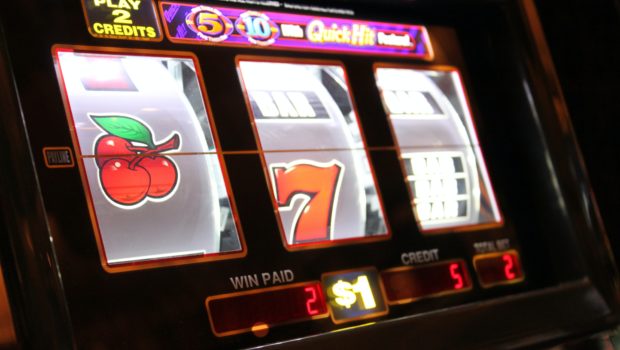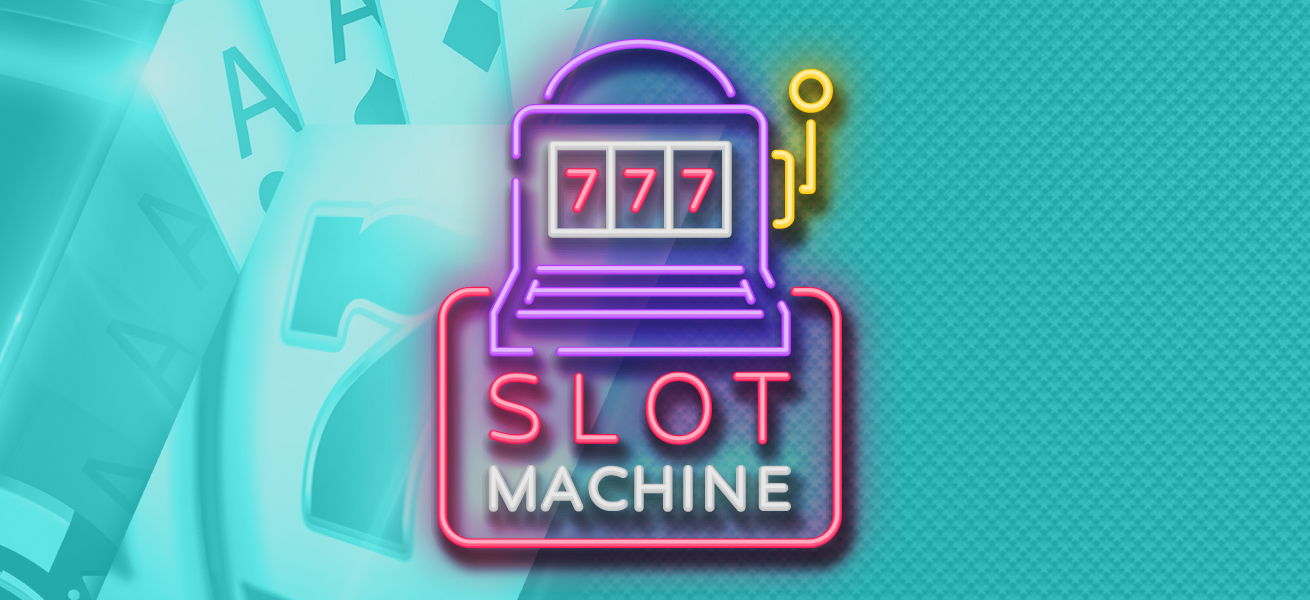Remember the movie National Lampoon’s Vegas Vacation, when gambling fever consumes Chevy Chase’s character, Clark W. Griswold? He goes on a losing streak to beat all losing streaks while his son, Rusty, wins four cars by playing the slot machines. Maybe Clark would have done better if he had read Probability For Dummies! In this article, you discover the basic ideas behind slot machines and how they work, so that you can get past the myths and develop a strategy based on sound probability.
Understanding average payout
Additionally, the only kind of slot machines allowed are electronic video slot machines. Therefore, you will not find any mechanical slots that have traditional reels - only video screens According to the terms of the compact between the state and the tribes, however, the minimum and maximum payouts are regulated as follows: video poker. Slots and table games both arrive at expected results through normal probability. It’s that last part that gives many slot players trouble. They see that a slot game has an expected payback percentage – usually less than 90 percent on penny slots but more on higher denominations. And they hear that results are random.
When casinos advertise that their slot machines pay out an average of 90 percent, the fine print they don’t want you to read says that you lose 10 cents from each dollar you put into the machines in the long term. (In probability terms, this advertisement means that your expected winnings are minus 10 cents on every dollar you spend every time the money goes through the machines.)

Suppose you start with $100 and bet a dollar at a time, for example. After inserting all $100 into the slot, 100 pulls later you’ll end up on average with $90, because you lose 10 percent of your money. If you run the $90 back through the machine, you’ll end up with 90 percent of it back, which is 0.90 x 90 = $81. If you run that amount through in 81 pulls, you’ll have $72.90 afterward (0.90 x 81 = 72.90). If you keep going for 44 rounds, on average, the money will be gone, unless you have the luck of Rusty Griswold!
How many pulls on the machine does your $100 give you at this rate? Each time you have less money to run through the machine, so you have fewer pulls left. If you insert $1 at a time, you can expect 972 total pulls in the long term with these average payouts (that’s the total pulls in 44 rounds). But keep in mind that casinos are designing slot machines to go faster and faster between spins. Some are even doing away with the handles and tokens by using digital readouts on gaming cards that you put into the machines. The faster machines can play up to 25 spins per hour, and 972 spins divided by 25 spins per minute is 38.88 minutes. You don’t have a very long time to enjoy your $100 before it’s gone!
The worst part? Casinos often advertise that their “average payouts” are even as high as 95 percent. But beware: That number applies only to certain machines, and the casinos don’t rush to tell you which ones. You really need to read or ask about the fine print before playing. You can also try to check the information on the machine to see if it lists its payouts. (Don’t expect this information to be front and center.)
Implementing a simple strategy for slots
Advice varies regarding whether you should play nickel, quarter, or dollar slot machines and whether you should max out the number of coins you bet or not (you usually get to choose between one and five coins to bet on a standard slot machine). In this section, you’ll find a few tips for getting the most bang for your buck (or nickel) when playing slot machines.
Basically, when it comes to slot machines, strategy boils down to this: Know the rules, your probability of winning, and the expected payouts; dispel any myths; and quit while you’re ahead. If you win $100, cash out $50 and play with the rest, for example. After you lose a certain amount (determined by you in advance), don’t hesitate to quit. Go to the all-you-can-eat buffet and try your luck with the casino food; odds are it’s pretty good!

Choosing among nickel, quarter, and dollar machines
The machines that have the higher denominations usually give the best payouts. So, between the nickel and quarter slots, for example, the quarter slots generally give better payouts. However, you run the risk of getting in way over your head in a hurry, so don’t bet more than you can afford to lose. The bottom line: Always choose a level that you have fun playing at and that allows you to play for your full set time limit.
Deciding how many coins to play at a time
When deciding on the number of coins you should play per spin, keep in mind that more is sometimes better. If the slot machine gives you more than two times the payout when you put in two times the number of coins, for example, you should max it out instead of playing single coins because you increase your chances of winning a bigger pot, and the expected value is higher. If the machine just gives you k times the payout for k coins, it doesn’t matter if you use the maximum number of coins. You may as well play one at a time until you can make some money and leave so your money lasts a little longer.
For example, say a quarter machine pays 10 credits for the outcome 777 when you play only a single quarter, but if you play two quarters, it gives you 25 credits for the same outcome. And if you play the maximum number of quarters (say, four), a 777 results in 1,000 credits. You can see that playing four quarters at a time gives you a better chance of winning a bigger pot in the long run (if you win, that is) compared to playing a single quarter at a time for four consecutive tries.
The latest slot machine sweeping the nation is the so-called “penny slot machine.” Although it professes to require only a penny for a spin, you get this rate only if you want to bet one penny at a time. The machines entice you to bet way more than one penny at a time; in fact, on some machines, you can bet more than 1,000 coins (called lines) on each spin — $10 a shot here, folks. Because these machines take any denomination of paper bill, as well as credit cards, your money can go faster on penny machines than on dollar machines because you can quickly lose track of your spendings. Pinching pennies may not be worth it after all!
Slot Machine Odds Calculator
Many players know all too well about the concept of high-paying slots and low-paying slots. These are not misnomers or fallacies; they are real-life realities. For example, there are slot machine games that are notorious for low payout rates, while there are other slots games that have significantly higher overall payout rates, usually owing to higher coin denominations required to play those slot games. You often hear the terms house advantage or house edge being used interchangeably when it comes to odds in casino games. However, when we are discussing Illinois slot machines games the term that is used by operators is payout percentage. It is essentially the same concept, but it is viewed from a different angle. If you want to know what the basic definition of a payout percentage is, it is simply the house edge subtracted from 100%.
RNGs and Slots Payouts are Linked
The concept of a random number generator is one that needs further illumination in order to understand how payouts of Illinois slot machines work. For the purposes of discussion, a random number generator simply randomizes the outcomes of slot machine games. The random number generator (RNG for short) is a computer program that has been designed and independently tested by third-party authorities affiliated with regulatory bodies to ensure the fairness and randomness of all outcomes. It is important not to confuse the purpose of an RNG and that of the casino’s payout percentage rate. These are two completely different aspects and they are for the most part unrelated to one another.
The casino is responsible for establishing its payout combinations to ensure that it remains profitable. The RNGs feature stops for every combination and every reel, but the payout for any combination hitting is determined by the casino. If you have for example 20 stops which each have an equal possibility of hitting over 3 reels, the calculation would be as follows: 1/20 X 1/20 X 1/20 equals 1/8,000 of all 3 spinning reels to land on a specific stop. Now the actual casino may have a payout for that combination of just 75:1 or 100:1 for example. This brings us to one of the most important aspects of Illinois slot machines and casinos: the payout is always less than the odds of winning.
Typical Payouts and Payout Percentages
Are Slot Machine Odds Published On The Machine Game
A standard online casino will have slot machine payout rates in the region of 95% – 98%. And the reason why these payout rates are so much higher than land-based casinos is a result of lower fixed costs of operations. Since everything is online, there is no need to maintain slot machines, no need to employ scores of personnel, no need to rent facilities other than servers, etc. Another important thing to bear in mind is PARS. Illinois slot machines players will typically not have access to things like this, but it is something that is important in the industry and is known to the casinos themselves. Many players believe that slot machine games which offer higher payout percentages will pay out more, but this is once again also open to interpretation.